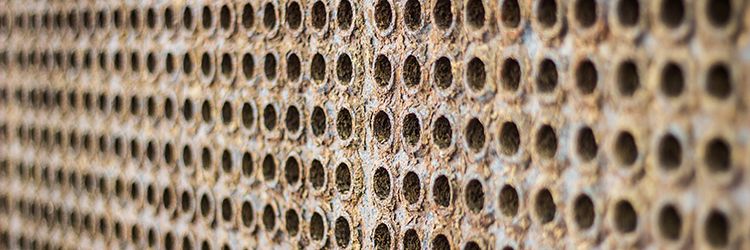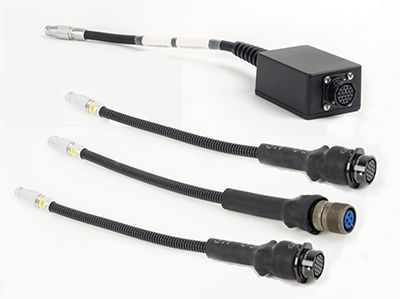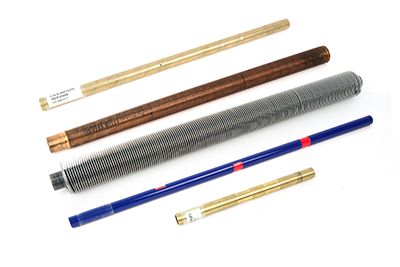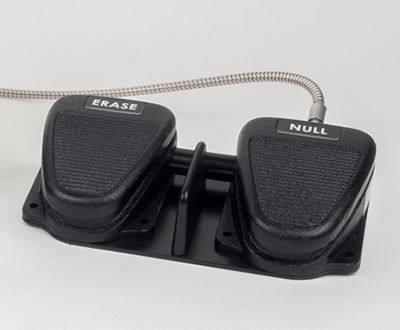Heat exchanger tubes are everywhere; from the petrochemical industry to air conditioners, exchangers are important in nearly every type of facility. The tubes are often under high pressure, exposed to dramatic temperature changes, and sometimes have corrosive materials flowing through or around them. These conditions can lead to tube erosion and cracks. If these problems aren’t addressed, the system can fail, leading to significant potential downtime.
The importance of heat exchangers necessitates a regime of regular inspection. However, these inspections can be challenging. The inspection can be time-consuming with some exchangers having thousands of tubes. In addition, exchangers are made out of a variety of materials, making inspection using a single technology difficult. Lastly, the NDT equipment used for the inspection can be expensive and tough for a single person to use. Having to send two people on an inspection job further adds to the overall cost.
Our heat exchanger tubing kit for the NORTEC® 600D flaw detector is helping to make tube testing faster and more efficient. With the kit, you can inspect any combination of ferrous, non-ferrous, finned, or un-finned tubing. A major advantage of the kit is that it supports multiple technologies—eddy current, remote field, and near field—enabling this solution to be used to inspect just about any exchanger tube that’s out there.
- Non-ferromagnetic, un-finned tubes
- TEA/TEB — Bobbin probe (attached/detachable)
- TEC/TED — AC probe (attached/detachable)
- TEE/TEF — Titanium casing probe (attached/detachable)
- TEG — Flexible bullet probe
- TEK/TEL — High-resolution probe (attached/detached)
- Non-ferromagnetic, finned tubes
- TEC/TED — AC probe (attached/detachable)
- Non-ferromagnetic U-bend tubes
- TEG — Flexible bullet (attached)
- Semi-ferromagnetic, un-finned tubes
- TEO — Carter magnetic probe
- TRS — Single exciter remote field probe with high frequency
- TRX — Dual exciter remote field probe with high frequency
- Ferromagnetic, un-finned tubes
- TRS — Single exciter remote field probe
- TRX — Dual exciter remote field probe
- Ferromagnetic, finned tubes
- TRD — Near field probe
- Boiler tubes
- TRC — Flexible boiler probe
If you already own probes, you’re ready to start inspecting—the kit is compatible with the probes you already own. Otherwise, browse our catalog to get the right probe for the job. | 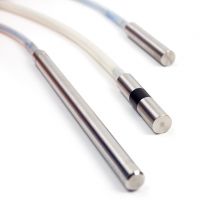 A TRX remote field probe (front), a TEA eddy current probe (middle), and a TEC A/C probe (back) |
The NORTEC 600D flaw detector delivers crisp signals and multiple display options to help increase the probability of detection. | 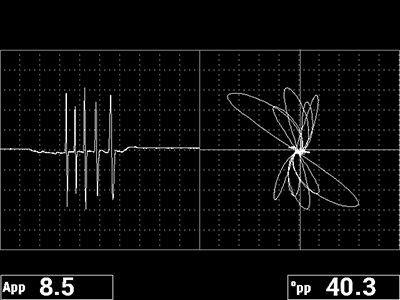 A good signal quality helps make inspections easier |
The freeze mode is great for tweaking the signal. It enables you to adjust the gain and rotation of the signal right on the screen. There’s also a full-screen mode so that you can focus on what’s important. |  See your signal in full-screen mode |
If you’re working around a support, it can interfere with your signal. The mix channel feature mixes out the signal from the support to better identify defects located in close proximity to it. | Work around supports |
If you need more information about tube inspection, don’t hesitate to contact us.

